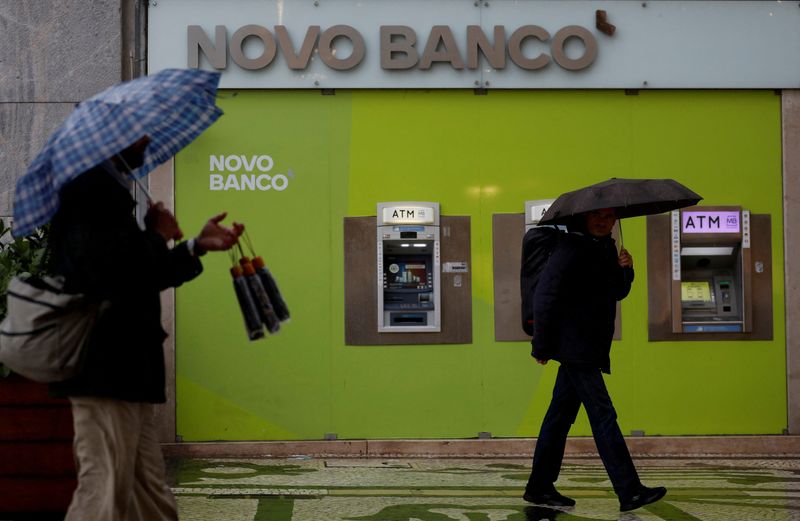By Sergio Goncalves
LISBON (Reuters) - Portugal's Novo Banco should be ready to seize the opportunity for an initial public offering when markets open up to listings, as it seeks to remain independent, its new CEO Mark Bourke told Reuters on Tuesday.
Analysts have speculated that profit-making Novo Banco, which emerged from the ruins of collapsed Banco Espirito Santo in 2014 and is controlled by U.S. private equity fund Lone Star, could be merged with another lender looking to consolidate its position in Portugal.
But Bourke, who took over in August, said that "Portugal is not like some of the north European countries, which are massively over-banked", as the five largest players own 80%-85% of the banking assets, a high level of concentration.
Novo Banco is now "a profitable, well-capitalised bank that can actually compete, endure, remain independent in the Portuguese market, and can invest and expand," he said.
The bank should build on its recovery track record and "be ready when and if the IPO opportunity arises to take advantage of it", he said.
Bourke, who had been chief financial officer since 2019, would not say where the bank could seek to be listed, although Portuguese companies usually choose Euronext Lisbon.
MASSIVE BAD LOANS CLEAN-UP
Since Lone Star bought its 75% stake in 2017, Novo Banco has focused on de-risking, closing subsidiaries abroad, offloading bad loans and real estate under tough restructuring commitments agreed with Brussels. Portugal's Resolution Fund has the remaining 25% stake.
Non-performing loans (NPLs) fell to 1.6 billion euros ($1.60 billion), or 5% of total credit, in September from 2.2 billion a year earlier. In 2017, its NPLs were 10.1 billion or 28% of total loans.
"The major part of the job is done. But we need to be looking at the European average, which is in the 2.5%-3% range... in the short to medium-term," Bourke said.
Novo Banco's nine-month net profit almost tripled to 428 million euros, citing improved commission income, capital market gains and a steep drop in impairments and provisions.
"This was the seventh straight quarter of profitability. We can generate 80 to 100 bps of capital through underlying profitability a year – that means we control our own destiny," Bourke said.
Although nine-month net interest income (NII), or earnings on loans minus funding costs, fell 5.6% due to higher funding costs of senior debt issuance and other factors, NII rose by 2.5% between July and September from the previous three months, benefiting from rate hikes by the European Central Bank.

The average rate of its net interest margin stood at 1.29%, but the impact of the upward repricing of the portfolios should come in the fourth quarter and Novo Banco should end the year "well above 1.5%", the upper bound of its forecast range, he said.
($1 = 0.9998 euros)